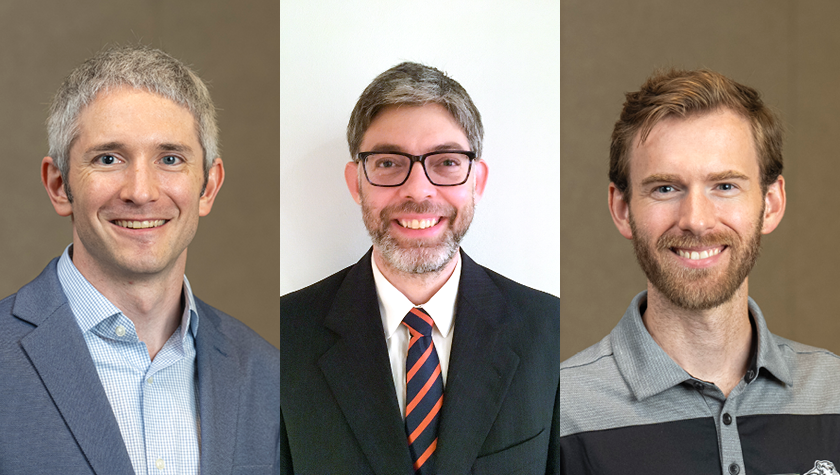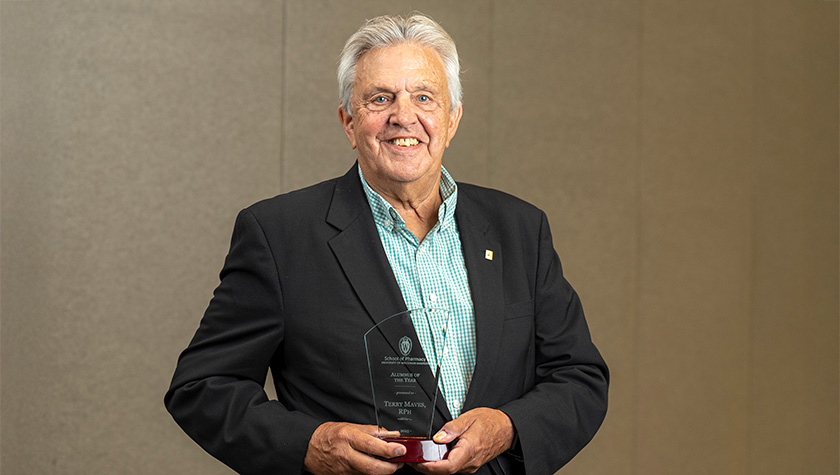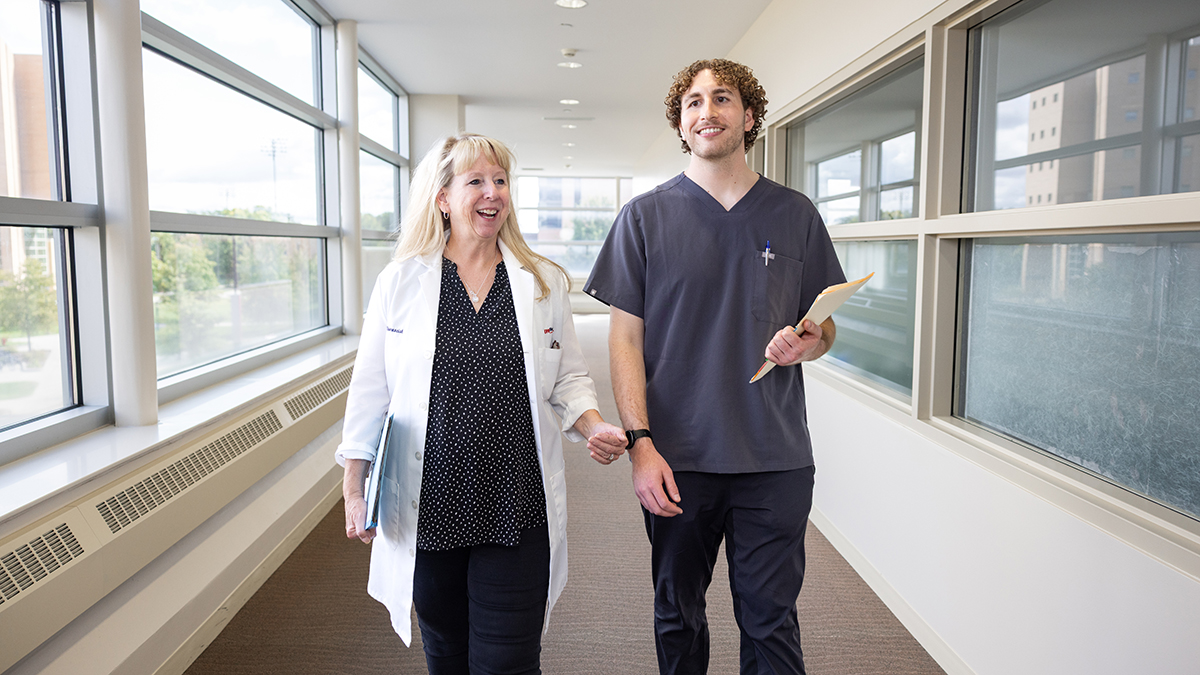
Some of the School of Pharmacy’s longest-serving alumni preceptors reflect on their love of mentoring and the evolution of pharmacy
By Katie Ginder-Vogel
Sarah Lentz (BS ’86) precepted her first student pharmacist in October of 1986, just months after graduating from the University of Wisconsin–Madison School of Pharmacy.
“I felt a little strange and somewhat overwhelmed realizing that just a few months prior, I was a student — I was not far removed from the level the students were at,” she says.
She didn’t know the experience would spark a career-long calling. Nearly 40 years later, she’s still helping to guide future pharmacists through some of their first experiences in real-life practice.
Lentz is one of a small number of alumni and practitioners who have been precepting Badger pharmacists for more than three decades. Alongside fellow alumni Brian McIlhone (BS ’87) and Susan Johnston (BS ’90), she represents one of the School’s longest-serving preceptors at the School of Pharmacy, united by a deep love of their profession and the next generation of practitioners.
Discovering a calling
For Lentz, Johnston, and McIlhone, the decision to become a preceptor was about following a passion for teaching and mentoring.
Lentz started her career at UW Health working on the inpatient Hematology, Oncology and Bone Marrow Transplant unit, the same clinical rotation that she worked on as a student. She later joined UW Hospital’s Pharmaceutical Research Center, which sets up government- and industry-funded clinical trials, primarily in oncology. The hospital’s teaching culture drew her in.

“One reason I came to work at UW Hospital was because so much of what we do is teaching — pharmacy students, nursing students, medical students, pharmacy residents, and fellows,” says Lentz. “I always liked that and wanted it to be part of my job, and at UW, it’s an expectation.”
She credits her own pharmacy rotations with shaping her path.
“UW–Madison is a great institution at which to learn, and pharmacy rotations guided me to the perfect career,” Lentz says. Mentorship from the late Professor Larry Boh, who was a renowned preceptor and namesake of the School’s annual Larry Boh Preceptor Excellence Award, helped her choose her career in oncology and, later, influenced how she precepted students herself.
Johnston also saw precepting as a way to give back immediately. She joined UW Health as a clinical pharmacist in pediatric hematology/oncology in 1991 and soon began taking on students.
“As a Badger alumna who learned from such high-caliber experts, I thought, someday, I’ll be able to precept and pass on my expertise and way of thinking about things,” Johnston says. “Being a student in a clinical environment is an amazing experience that makes you want to pay it forward as a preceptor. That’s why I wanted to get involved in teaching from the start.”
“Being a student in a clinical environment is an amazing experience that makes you want to pay it forward as a preceptor.”
–Susan Johnston
Like Lentz, Johnston also worked with Boh.
“Precepting is an art form,” he told her, encouraging her to push herself further. That advice propelled Johnston to earn her PharmD at UNC before returning to UW Health in 1995; she is now a pharmacy director for the organization. On top of overseeing research, oncology, and the nuclear services lines for pharmacy, she also continues to precept pharmacy residents.
McIlhone has a different background, steeped in community practice, but the same motivation. He has been precepting since 1990, when he began his career at Walgreens. He worked in roles from staff pharmacist to district manager over the course of 30 years, before moving to Marshfield Clinic in Minocqua, Wisconsin, five years ago.
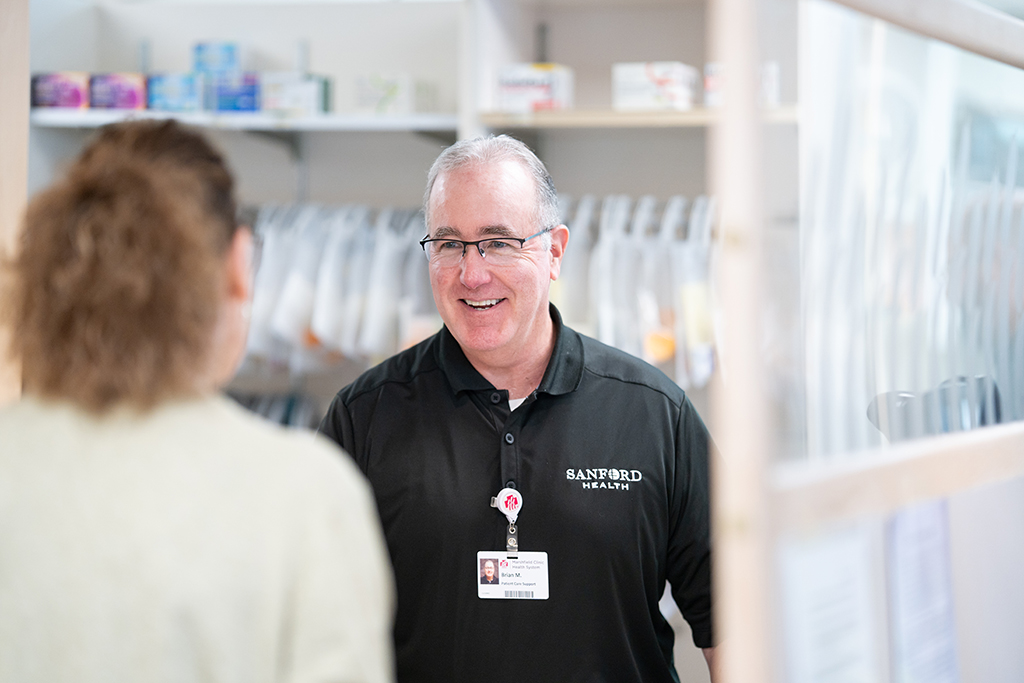
“I’m one of those people who really enjoyed school, and when I became a pharmacist, I really enjoyed working with students and always wanted that fresh energy in the pharmacy,” McIlhone says. “They’re all smart and want to do well, and they come to your pharmacy looking to work hard and learn, and it’s very inspiring to see that.”
Over the years, he supervised students through management, immunization, and community pharmacy rotations. He recalls taking students on the road as he visited the 40 stores he managed, giving them firsthand exposure to operations, performance metrics, and leadership. At Walgreens, he also coached students on marketing flu shots and gaining confidence in patient consultations.
“I noticed that after coaching them through it, within a week or two, some of them were rocking it,” he says. “We had students who’d come in super quiet, and by the second or third week, they’d be chatting with everyone, having fun with the customers, and we could see that confidence building.”
The evolution of precepting
Three decades of precepting means these preceptors have seen pharmacy education and students transform.
Lentz says that today’s students arrive with deeper knowledge and more clarity about their career goals.
“I have found that the students are better prepared, with a stronger clinical background and higher learning expectations,” Lentz says. “Some students have a specific interest in working in industry, which I haven’t often seen in the past. I’m also seeing more with a clinical focus, who want to understand clinical trials.”
“They’re all smart and want to do well, and they come to your pharmacy looking to work hard and learn, and it’s very inspiring to see that.”
–Brian McIlhone
Johnston agrees that current students bring new strengths.
“Our pharmacy students today are tech-savvy, business-savvy, and a little more worldly,” Johnston says. “They want to positively impact patient care and take care of people, and as they learn and ask questions, it pushes preceptors to offer more guidance and challenges us to be better.”
She adds that training has also gotten more specialized.
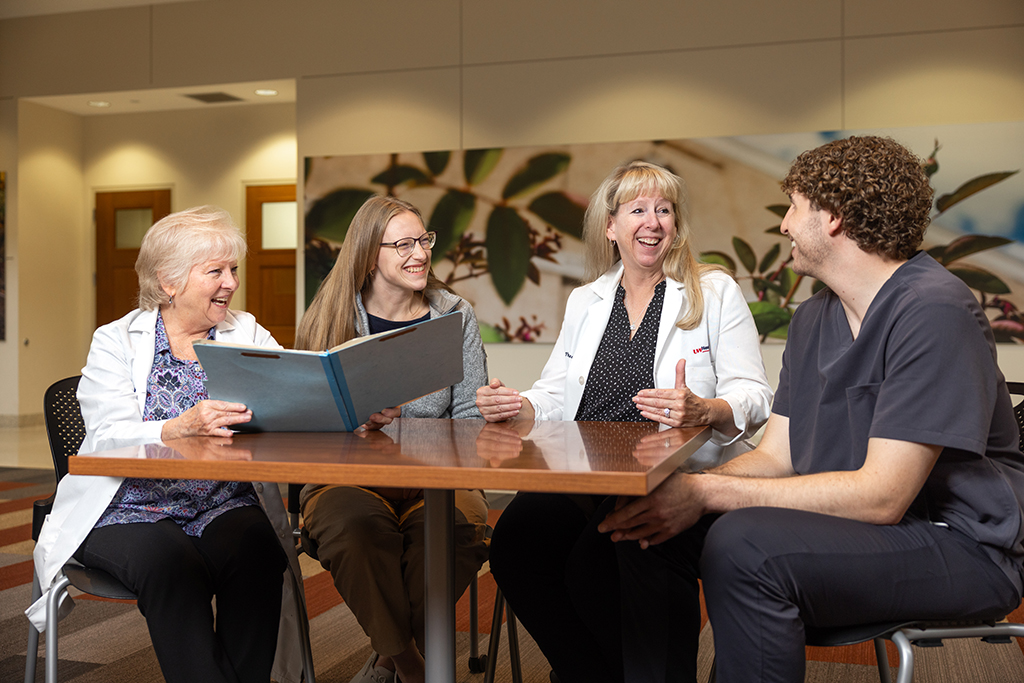
“The training and the experiences PharmD students have available now are so variable,” Johnston says. “At the School of Pharmacy, they can select paths of distinction including rural health, research, or a focus on technology and operations.”
McIlhone saw a major shift in his students when the School of Pharmacy launched their PharmD program in 2000.
“They wanted to learn everything and be sponges,” he says. “I noticed that students were much more engaged in project topics they wanted to learn about specific medications, like antipsychotics or antibiotics, because they’d had more experience.”
A career-long passion
Lentz, McIlhone, and Johnston all express deep satisfaction with their careers in pharmacy, with their precepting experiences serving as a cornerstone of that fulfillment.
“I’ve learned from every single one, and that’s what keeps me in the game,” Lentz says. “I respect my students as my future colleagues and learn from them, and I’m not afraid to ask how they did something. They have different ways of looking at things that we as preceptors can still learn from.”
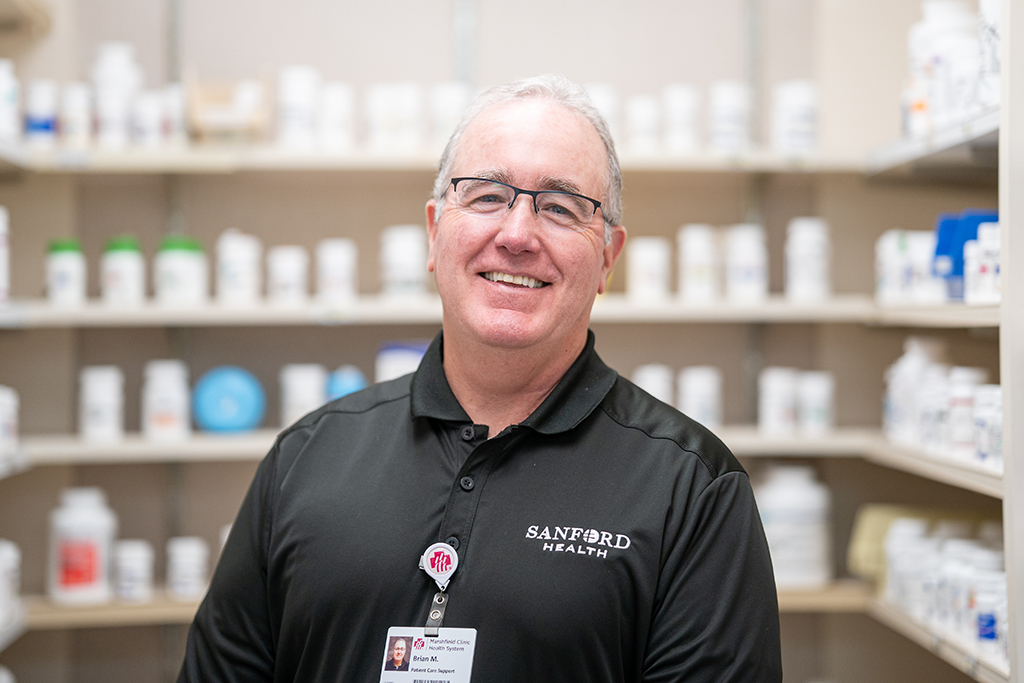
As she grew as a preceptor, the advice of her mentors became the advice she passed along to students.
“I am grateful that I had mentors who taught me that it is important to feel comfortable with saying, ‘I do not know the answer to that question, but I will follow up with you with the correct answer,’” she says. “I had to repeat that statement frequently in my career, and I still to this day — after nearly 40 years of practice — have to make that statement.”
Many of the students Lentz, McIlhone, and Johnston have precepted have since become their colleagues.
“Many do a rotation, like what they see, and sign on,” McIlhone says. “I always told them, it’s important to see all different practice settings, so when you’re making a decision, you’ll feel better about the career path you choose.”
For Johnston, the privilege of patient care also continues to motivate her.
“It’s always a privilege to take care of patients and to be on the front line of offering state-of-the-art, cutting-edge therapies,” says Johnston. “That’s kept me engaged for over 30 years.”
“I’ve learned from every single one, and that’s what keeps me in the game.”
–Sarah Lentz
With retirement on the horizon this fall, Lentz looks back at her career as one filled with both mentoring and pursuing curiosity.
“I have loved what I’ve done and my focus in oncology,” she says. “I have never been bored at work and still love what I do, 40 years later, because we’re challenged, every day is different, and we learn every day. I love my job.”
